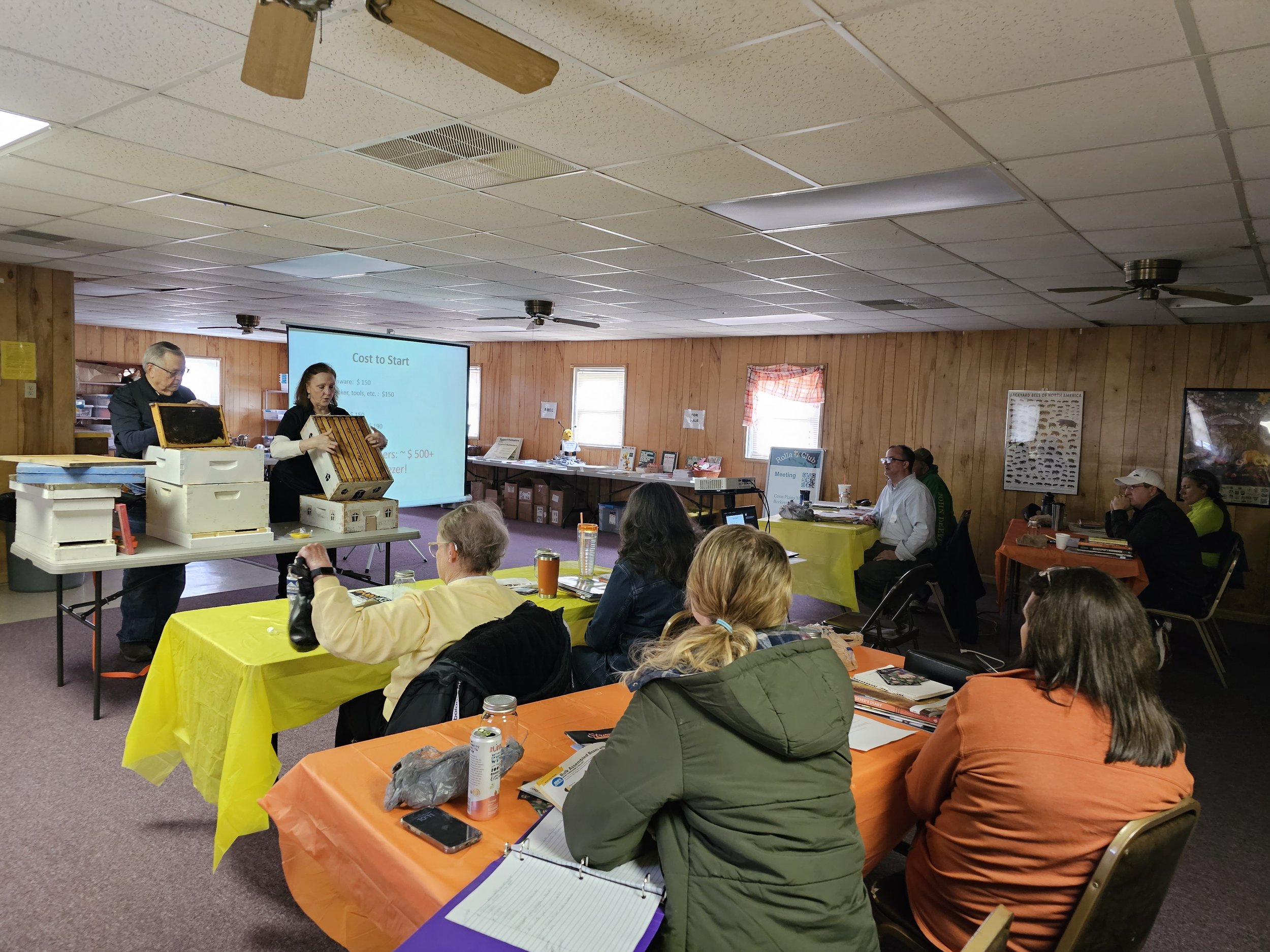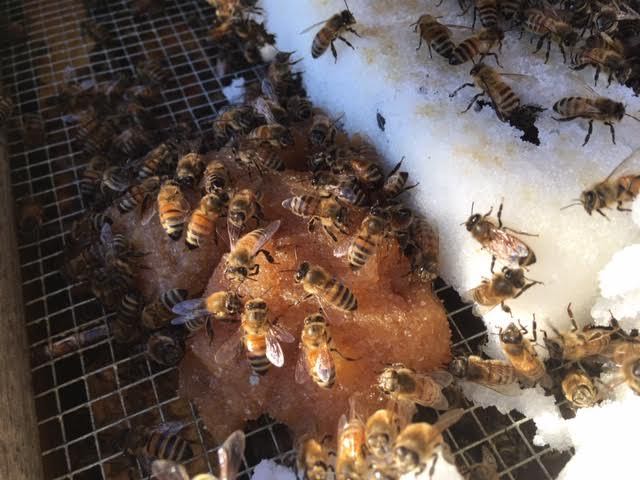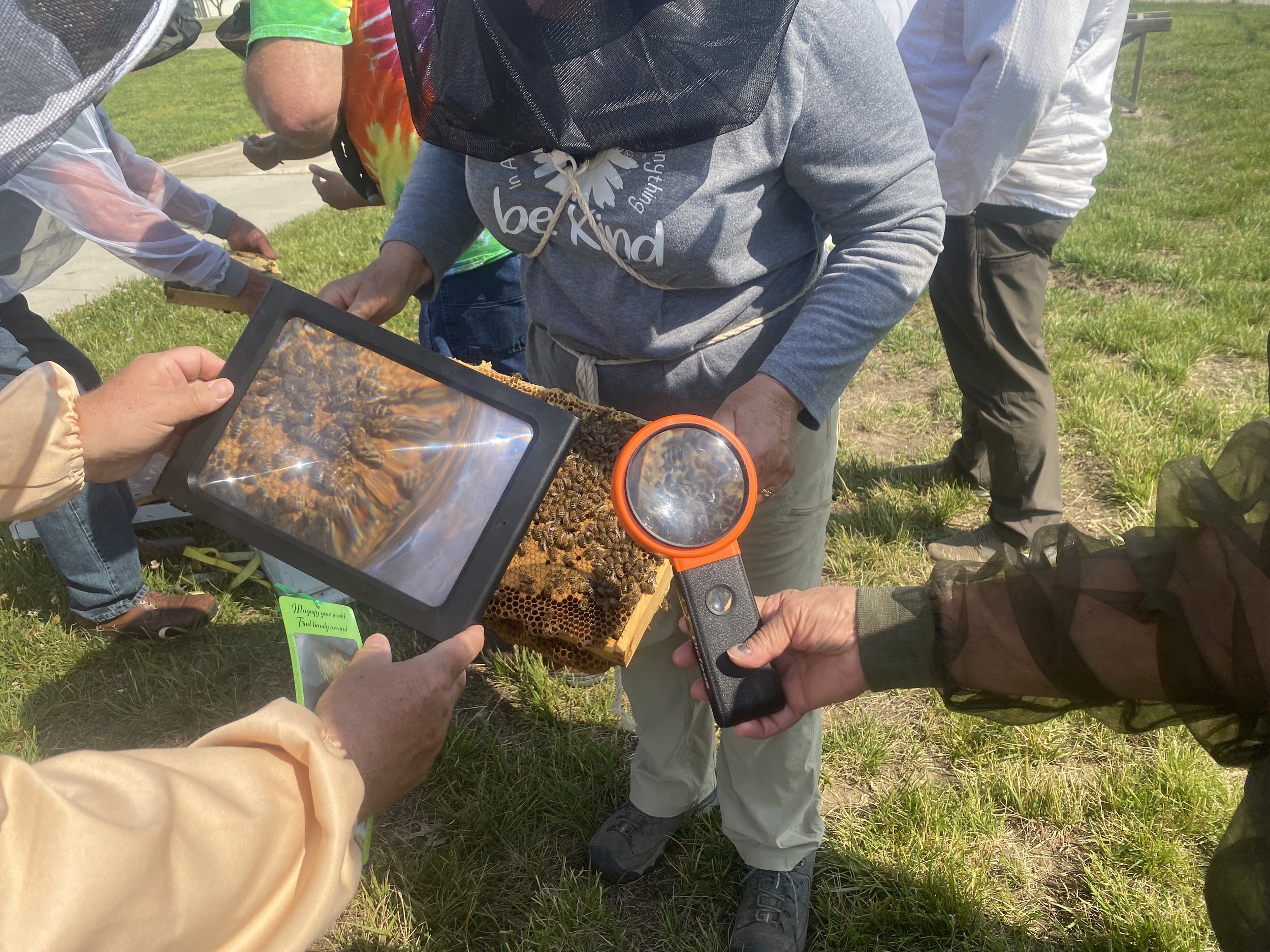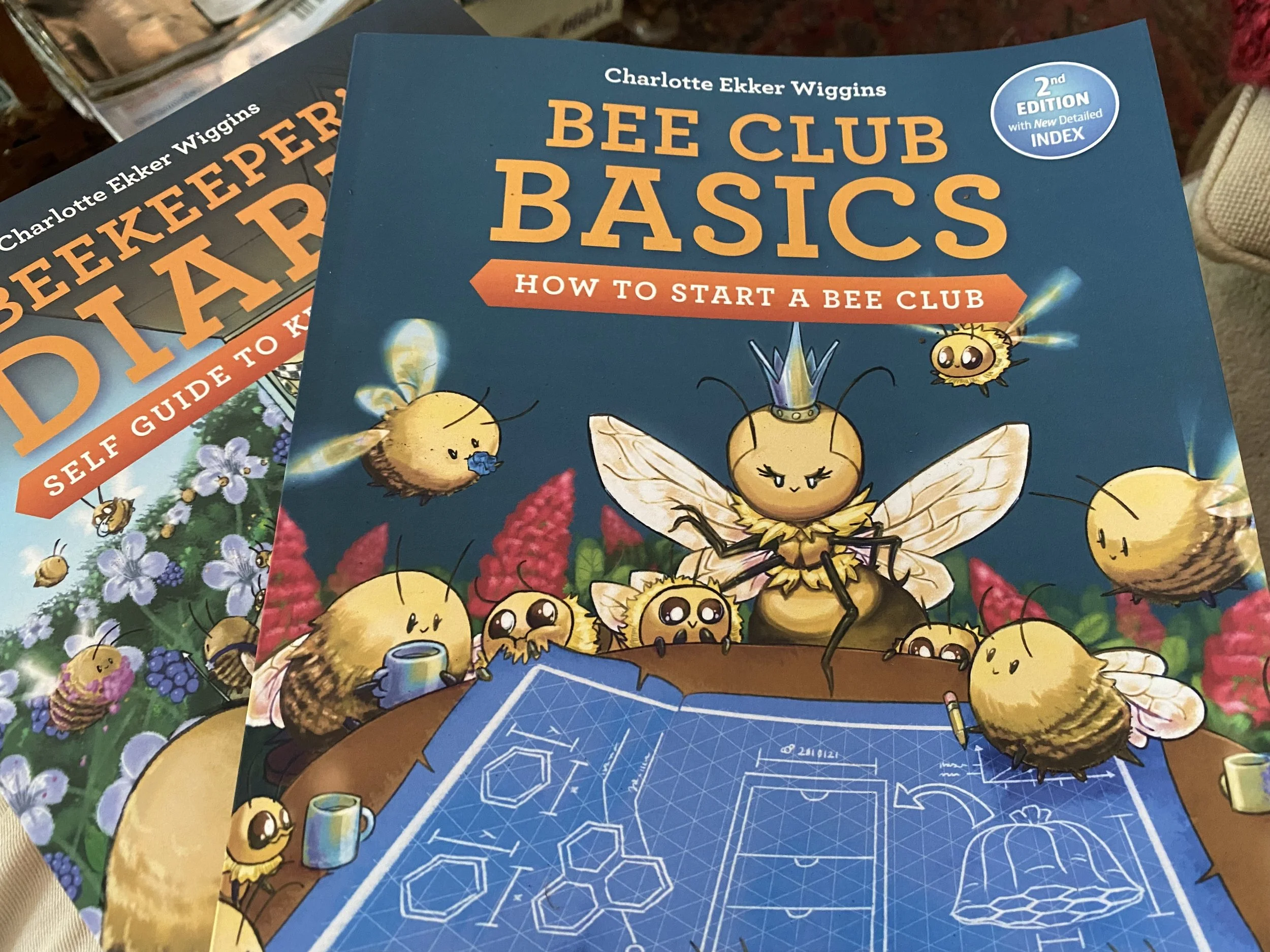Problem-Solving with Beginning Beekeepers
/David Draker, left, helps me March 26, 2022 set up a class demonstration hive. (Charlotte Ekker Wiggins photo)
Problem-Solving with Beginning Beekeepers
Our local bee club held the last of our winter classes, a Second Year Beekeeping class covering the common mistakes beginning beekeepers make.
How do we know? Why from personal experience, of course!
From how to keep your smoker going for at least one hour to options for managing Varroa mites co-existing with bees, the class covers options as new beekeepers decide how to work with their bees.
The options can be complicated. Considering that most beekeeping questions are answered with “it depends,” the class focused on teaching basic key techniques. It will be up to the beekeepers to decide when they apply what they learned and how it may help their bees.
Learning to keep honey bees is not easy. It can take several years of trying to help bees survive winter before a beginning beekeeper is successful. In our bee club, people starting to learn how to keep bees don’t get to call themselves beekeepers until they successfully work with at least one colony through winter.
To celebrate this accomplishment, we “pinned” 11 beekeepers with their beekeeping pins before class started. Two beekeepers from Kansas, one from Illinois and the rest from Missouri.
Eleven new “beekeepers” in our March 26, 2022 second year beekeeping class. (Charlotte Ekker Wiggins photo)
Look at those happy faces, and for good reason. Learning basic honey bee biology and all of the other things one has to quickly learn to be a successful beekeeper is quite an accomplishment. For several of these beekeepers, it took 3 years before they successfully worked with at least one colony through winter.
So what happened when they lost their bees?
One said the colony ran out of food. Another one said the colony got wet. A third is not sure but suspects it was lack of food. We love celebrating successes but these failures are more important, they are key teaching opportunities.
The learning doesn’t start, and stop, here. This class is one of many classes certified, and available, through the Great Plains Master Beekeeping Program out of the University of Nebraska at Lincoln. An education program, as opposed to a certification program, the Great Plains Master Beekeeping Program is focused on teaching beekeepers scientifically-based best management practices.
Military veterans and their families who learn to keep honey bees through the Heroes to Hives program will also be joining Great Plains after their first year of beekeeping. Currently Great Plains Master Beekeeping covers 7 midwest states.
The problem-solving techniques featured in this class are also included in “A Beekeeper’s Diary Self-Guide to Keeping Bees” 2nd edition. The book is used as the classroom guide for my beginning beekeeping classes and stands alone for those who can’t reach a beginning beekeeping class. The book is also approved by Great Plains Master Beekeeping.













